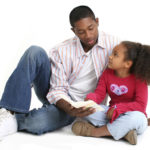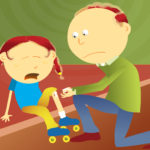Helen Keller wrote, ”Anybody can lead a child to a classroom. It takes a teacher to lead a child to learn.” Keller is perhaps the most famous of students of the 20th century. Her teacher, Annie Sullivan, taught Helen, who became blind and deaf at the age of 19 months, how to communicate and connect […]
Category Archive:
Teaching and learning principles
Characteristics of the Adolescent
For centuries the Judeo-Christian tradition has held a coming of age ritual for thirteen-year-olds. The Jewish Bar and Bat Mitzvahs and the Christian confirmation announce an adolescent’s provisional membership in his or her religious adult communities. With changing legislation over the past 50 years young people’s official entry into the adult world occurs eight years […]
Use a Purple Pencil
Harold, the hero in Crockett Johnson’s classic book Harold and the Purple Crayon, uses his imagination and crayon to create an adventure. Off Harold goes, using his waxed stick to draw a path, along with a moon to use as his navigational aid. During his escapade, Harold’s crayon creates a forest, an ocean and a […]
The Neglected Needs of Teens
Around age 12 with the onset of puberty, the human being undergoes physical and psychological metamorphoses. The child changes into an adolescent, and life will never be the same, for parent or child. The young adolescent needs opportunities to step outside his or her familiar community of home, church and school, while still using these […]
Learning from Bumps and Bruises
As I visit with preschool administrators around the country a common theme emerges: the dynamics of smaller families are affecting children’s abilities to learn how to endure the bumps and bruises of everyday life. Many school principals and teachers hear from upset parents the first few days and weeks of school because children go home […]
Fears of the Young Child
Fear, sadness and anger are three of the most difficult emotions for children, and adults for that matter, to learn to manage. These emotions are interrelated in that fear can be the core emotion behind anger and sadness. Children need to be able to modulate their emotions in order to focus their attention, to concentrate, […]
Children Love Routine, But…
The art of a parent or a teacher is to keep a child’s environment predictable enough to feel safe, but challenging enough to be exciting. Winston Churchill wrote, ”Human beings are of three classes: those who are toiled to death, those who are worried to death and those who are bored to death.” So it […]
To Have Peace, Teach Peace
In the minute-by-minute clash of news from around the world, peace seems an elusive goal. Peace, though, is not dependent on rest of the world’s cooperation. Peace begins with the individual and the individual’s decision to lead a peaceful life. Peace must be chosen, and we need to teach others to choose peace, joy and […]
Addressing Key Frustrations With Your Children
”If life is a bowl of cherries, why am I in the pits?” Erma Bombeck knew how to see the humor in day-to-day reality. Maintaining a positive and forward-moving life is a challenge to say the least. Life has a way of helping us misplace our senses of humor in a hurry. Some days the […]
Ten Conversations
A small red book holds a lot of wise parenting advice. Shmuley Boteach in his book, 10 Conversations You Need To Have With Your Children, tells us about essential and ongoing chats we should have with our children. Boteach, a rabbi, and former host of The Learning Channel’s Shalom in the Home and father to […]










